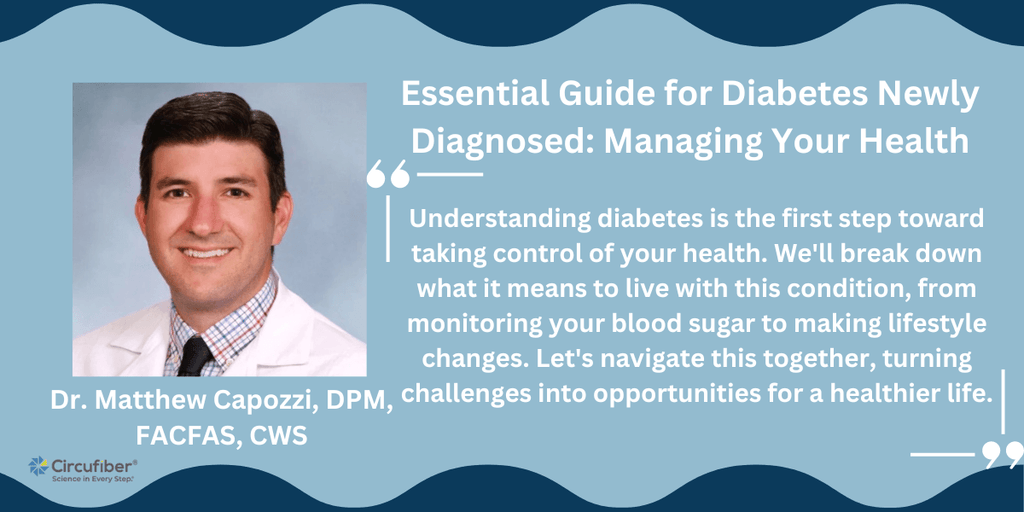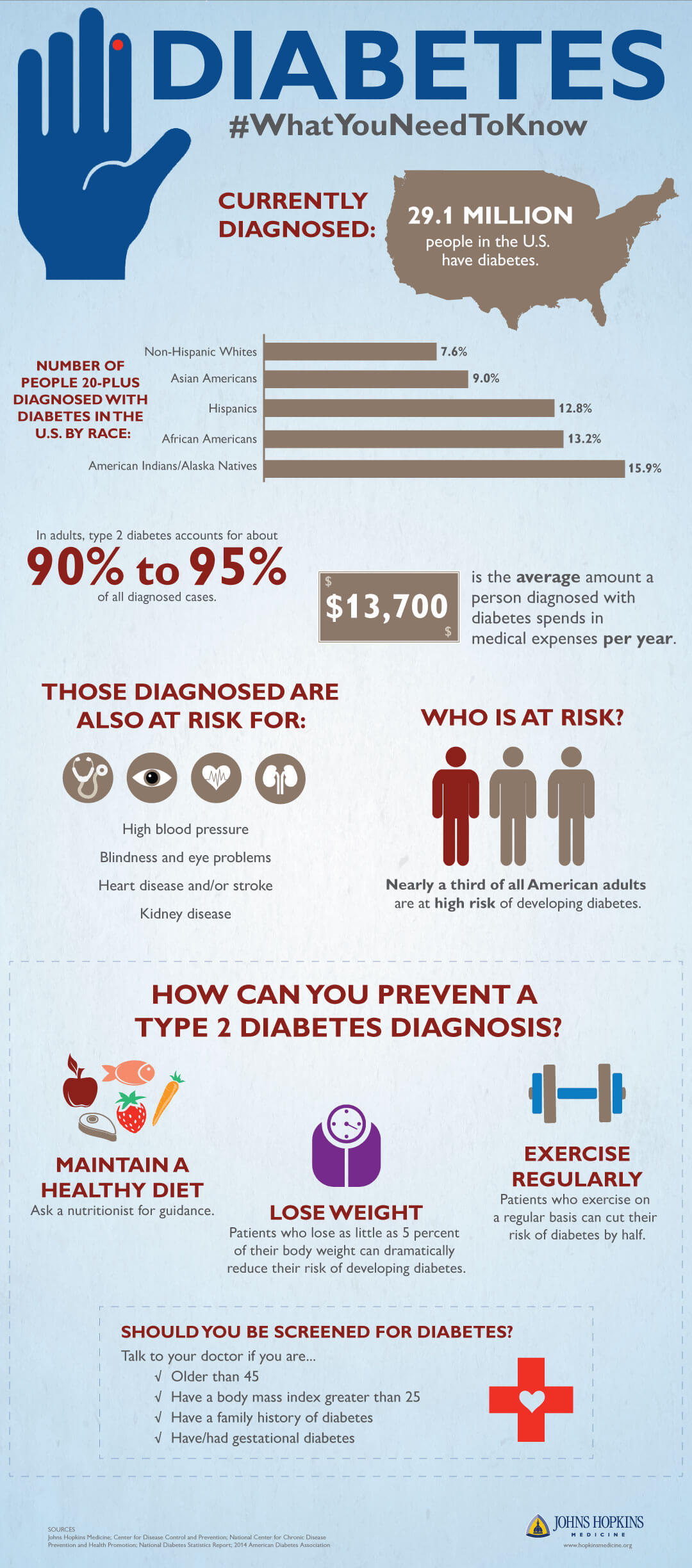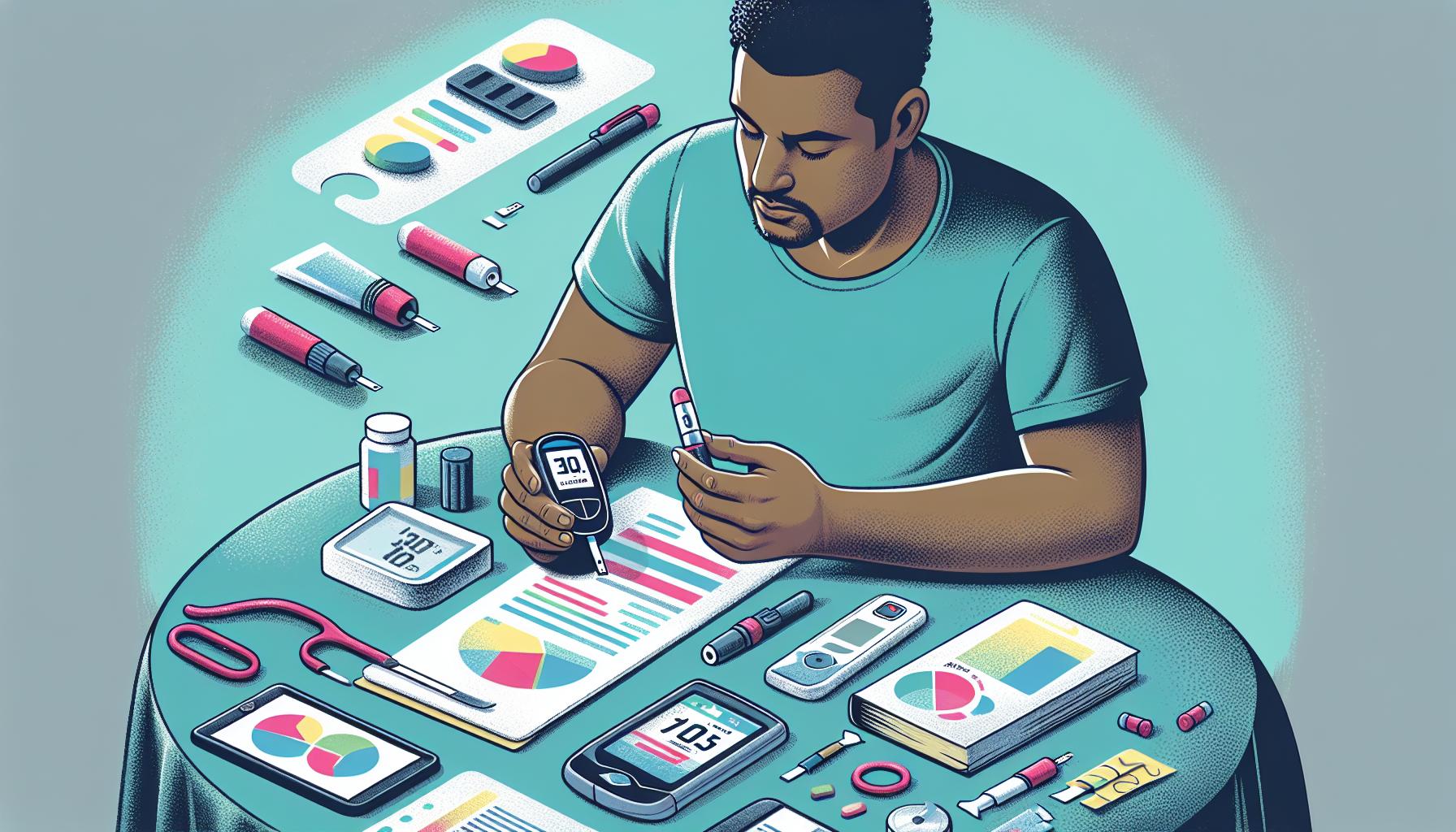Medically Reviewed by:Scientific Advisory Board
Receiving a new diabetes diagnosis can feel overwhelming. We're here to guide you through this journey, offering support and clear information. It's a path many have walked before, and with the right knowledge, you can manage it effectively.

Understanding diabetes is the first step toward taking control of your health. We'll break down what it means to live with this condition, from monitoring your blood sugar to making lifestyle changes.
Understanding Diabetes
When we find ourselves or our loved ones facing a diabetes diagnosis, it's vital to grasp the basics of this condition. At its core, diabetes revolves around our body's ability to process glucose, a crucial energy source for our cells.
There are two primary forms of diabetes, each demanding a nuanced understanding. Type 1 diabetes, often diagnosed in childhood, stems from the body's inability to produce insulin, a key hormone in regulating blood glucose levels. On the other hand, Type 2 diabetes typically develops over time and is characterized by the body's ineffective use of insulin. Both types require careful monitoring of blood sugar levels to prevent potential complications.
Key Facts to Remember
- Type 1 diabetes requires lifelong insulin therapy.
- Type 2 diabetes can often be managed through lifestyle changes and medication.
- Diabetes is a leading cause of blindness, kidney failure, and heart ailments among adults.
Recognizing the symptoms early is crucial for timely intervention. Common red flags include excessive thirst, frequent urination, unexplained weight loss, and increased fatigue. If you're experiencing any of these symptoms, it's essential to consult a healthcare professional without delay.
Proper management of diabetes hinges on regular monitoring of blood glucose levels. This not only aids in assessing how well your diabetes is controlled but also helps in adjusting your diet, physical activity, and medications accordingly.

Lifestyle Modifications for Better Management
Adapting your lifestyle plays a pivotal role in managing diabetes effectively. Key adjustments include:
- Adopting a balanced diet rich in nutrients
- Incorporating regular physical activity into your daily routine
- Monitoring blood sugar levels consistently
Educating ourselves about diabetes paves the way for a healthier future. Armed with knowledge, we can transform challenges into stepping stones for a life marked by resilience and vitality.
Monitoring Blood Sugar

When we're diagnosed with diabetes, understanding how to monitor our blood sugar levels becomes a pivotal part of our daily routine. This practice isn't just about keeping numbers within a certain range; it’s about empowering ourselves to take control of our health. Accurate and consistent monitoring can help us make informed decisions about diet, exercise, and medication.
Initially, the concept might seem daunting. But, with the right tools and techniques, we'll soon find it to be a manageable—and crucial—aspect of our diabetes care. Blood glucose meters are the most common devices used for this purpose. They're compact, relatively easy to use, and capable of providing immediate feedback on our blood sugar levels.
Let's break down the process:
- Choose a Glucose Meter: There are various models available, each with its own set of features. It's important to select one that suits our lifestyle and meets our specific needs.
- Regular Testing: Consistency is key. Testing at the same times each day provides us with more reliable data to assess how well our diabetes management plan is working.
- Log Your Results: Keeping a record of our blood sugar levels, along with notes on diet, exercise, and medication, can give us valuable insights into how our body responds to different situations and helps in planning our care.
For accurate monitoring, here are some tips:
- Ensure hands are clean and dry before testing.
- Rotate testing sites to prevent soreness.
- Callibrate the glucose meter as recommended by the manufacturer to ensure accuracy.
Understanding our blood sugar patterns is crucial. It helps us to adjust our meals, physical activity, and medications more effectively. Also, detecting any significant fluctuations early enables us to seek timely medical advice, so preventing potential complications.
Regular check-ups with healthcare professionals can further tailor our monitoring routine to our individual needs, providing personalized advice on managing blood sugar levels effectively. These experts can also introduce us to emerging technologies and monitoring devices, offering newer, potentially more convenient ways to stay on top of our diabetes management.
Making Lifestyle Changes
When faced with the reality of a diabetes diagnosis, understanding that lifestyle changes are not just beneficial but necessary can be a transformative realization for us.
These adjustments, daunting as they may seem initially, serve as the cornerstone of managing diabetes effectively. It's about adopting a proactive approach towards our health, which in turn, empowers us to live our lives with fewer restrictions and more freedom.
Adjusting Our Diet
The phrase "you are what you eat" holds significant weight when it comes to managing diabetes. Incorporating a balanced diet rich in fruits, vegetables, whole grains, and lean proteins can make a world of difference. It's about being mindful of each choice we make on our plate because these decisions directly influence our blood sugar levels. Portion control and understanding the glycemic index of foods play crucial roles here, allowing us to enjoy varied meals without the worry of spike in our sugar levels.
Embracing Physical Activity
Regular exercise can feel like a chore. But, integrating it into our daily routines can enhance our body's sensitivity to insulin, effectively helping us to manage our blood sugar levels more efficiently. Be it brisk walking, cycling, swimming, or joining a fitness class, the key is consistency. About 150 minutes of moderate to vigorous exercise per week is recommended, but it's important to start slow and gradually increase intensity and duration based on our comfort and capability.
Monitoring and Medication Management
Closely monitoring our blood sugar levels and adhering to any prescribed medication regimes are pivotal aspects of managing diabetes. It's not merely about routine checks but understanding the patterns in our readings, which can aid in making informed decisions about our meals and activity levels. In some cases, medication becomes necessary. Hence, ensuring we're taking them as prescribed, without any lapses, is crucial to keep our levels in check.
As we carry out these changes, it's vital to remember, every small step counts. We're not alone in this journey; support groups, healthcare professionals, and a plethora of resources are available to guide us through. Making lifestyle adjustments might seem challenging initially, but with perseverance, it becomes a part of who we are - not just something we have to do.
Managing Diabetes Effectively
When we're diagnosed with diabetes, it's like we've been handed a new role in life that requires dedication, awareness, and a proactive approach. Managing diabetes effectively isn't about drastic changes but about incorporating small, sustainable adjustments into our lifestyle. We've gathered some pivotal strategies to help navigate this journey.
Knowledge Is Power: Understanding diabetes is the first step towards controlling it. We need to educate ourselves about the types of foods that affect our blood sugar levels, the importance of regular exercise, and how our body responds to medications. This knowledge enables us to make informed decisions daily.
Regular Monitoring: Keeping a close eye on our blood sugar levels is crucial. It's not just about checking these levels; it's about understanding the patterns. We'll start to notice how our body reacts to different foods, activities, and stress, which enables us to fine-tune our management plan.
Dietary Adjustments: Our diet plays a significant role in managing diabetes. Opting for a balanced diet rich in fruits, vegetables, whole grains, and lean protein can help manage our blood sugar levels. We should aim to minimize processed foods high in sugar and fat, as these can lead to spikes in our blood sugar.
Staying Active: Physical activity is a pillar of diabetes management. Engaging in regular exercise helps lower blood sugar levels, boosts our energy, and improves our overall health. We don't need to run marathons; even a brisk walk or daily stretching can make a significant difference.
Stress Management: Stress affects blood sugar levels. We've found that incorporating stress-relieving practices such as yoga, meditation, or even deep-breathing exercises can help keep our levels stable.
Medication Adherence: If we're prescribed medication, taking it as directed is vital. Medications are a key component of diabetes management for many people, and adhering to our prescribed regimen can help stabilize our blood sugar levels.
Regular Check-Ups: We can't do it all alone. Regular appointments with our healthcare provider are crucial. These check-ups allow for adjustments to our management plan based on how our diabetes is progressing.
By embracing these pillars of diabetes management, we position ourselves for a healthier and happier life. It's all about taking those small steps consistently, listening to our bodies, and staying connected with our healthcare team. Every day is an opportunity to take control of our diagnosis and live life to its fullest.
Conclusion
Embracing these strategies isn't just about adhering to a set of rules; it's about transforming our lives for the better. By monitoring our blood sugar levels diligently, making informed dietary choices, staying physically active, and keeping stress at bay, we're not just managing diabetes—we're taking charge of our health.
Regular consultations with healthcare providers ensure that our approach is tailored to our unique needs, making our path to wellness both effective and sustainable. Let's remember, support is always around the corner, from healthcare professionals to support groups, ready to help us navigate this journey. Together, we can turn the challenge of diabetes into an opportunity for a healthier, more fulfilling life.
References, Studies and Sources:
https://www.who.int/news-room/fact-sheets/detail/diabetes
https://www.mayoclinic.org/diseases-conditions/diabetes/symptoms-causes/syc-20371444
More About Circufiber.com and Healthcare disclaimer:
Always consult your physician before beginning any program. This general information is not intended to diagnose any medical condition or to replace your healthcare professional. If you experience any pain or difficulty, stop and consult your healthcare provider. Circufiber.com socks are clinically proven to improve micro-circulation in feet and lower extremities in people with Diabetes.
More Author Information:
Dr. Capozzi is a board-certified foot surgeon through the American Board of Foot and Ankle Surgery. He is a Diplomate of the American Academy of Wound Management and Fellow of the American College of Foot and Ankle Surgeons. He completed a three-year residency program in Foot and Ankle Reconstructive Surgery at St. Francis Hospital & Medical Center in Hartford, CT in 2010. Dr. Capozzi is a board-certified Wound Specialist® granted by the American Academy of Wound Management. He is also board-certified in Foot Surgery through the American Board of Foot and Ankle Surgery.




